iMOVE and Ghorfa welcomed approximately 250 education and training experts from Germany and Arab countries to the 7th Arab-German Education and Vocational Training Forum on the 5 and 6 October 2016 in Berlin, Germany. The event was opened by Minister of Education, Professor Johanna Wanka.
This year the Forum was once again held under the auspices of the German Federal Ministry of Education and Research (BMBF).
7th Arab-German Education and Vocational Training Forum
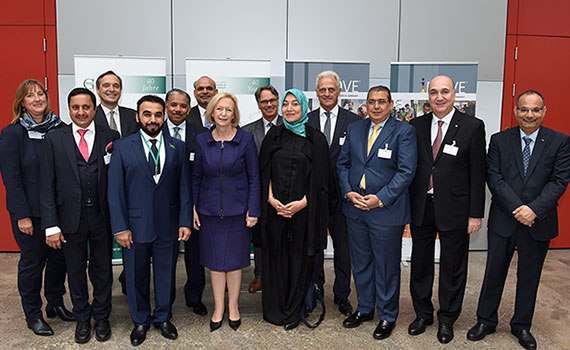
The main priorities of this year's Education and Vocational Training Forum were the energy sector, the tourism industry and the combination of vocational and academic education and training. The focal region was North Africa.
Approximately half of the guests came from eleven Arab countries. Guests included delegations from Algeria and Iraq, the Secretary of State of the Tunisian Education Ministry, the Minister for Higher Education, Training and Science from Libya, the new Governor of Technical and Vocational Training Corporation (TVTC) from Saudi Arabia, the President of the General Union of Arab Chambers of Industry and Commerce, the Director of the Economic Relations department of the Arab League and the ambassadors of nine Arab countries in Germany.
Approximately half of the guests came from eleven Arab countries. Guests included delegations from Algeria and Iraq, the Secretary of State of the Tunisian Education Ministry, the Minister for Higher Education, Training and Science from Libya, the new Governor of Technical and Vocational Training Corporation (TVTC) from Saudi Arabia, the President of the General Union of Arab Chambers of Industry and Commerce, the Director of the Economic Relations department of the Arab League and the ambassadors of nine Arab countries in Germany.
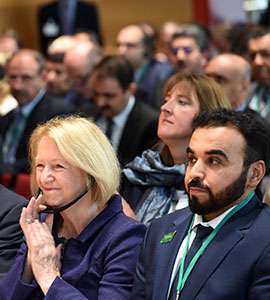
Formal opening of the 7th Education and Vocational Training Forum

Developing networks and fostering mutual understanding
The introduction to the 7th Arab-German Education and Vocational Training Forum was delivered by Ulrich Meinecke, Head of iMOVE: Training – Made in Germany in the Federal Institute for Vocational Education and Training (BIBB), and Abdulaziz Al-Mikhlafi, General Secretary of the Ghorfa Arab-German Chamber of Commerce and Industry.
Meinecke emphasized the huge importance of vocational education and training which is ultimately also the key to peace and prosperity. Al-Mikhlafi referred to the fact that over 50% of the population in Arab countries is under 25 years of age and that efforts made using education and training to lay the foundation for sustainable development in the Arab region will be worthwhile.
Dr. Peter Raumsauer praised the positive momentum which has been part of German-Arab collaboration in the education and training sector over many years. High priority is attached to vocational education and training in Arab countries. Ramsauer also addressed the image problem faced by vocational education and training in the region and took the view that it deserved to be valued more highly by society.
Federal Minister of Education, Professor Dr. Johanna Wanka, outlined the key importance of vocational education and training for Germany in her speech.
Germany has always placed unwavering reliance on vocational education and training. The Organisation for Economic Cooperation and Development (OECD) has now acknowledged that vocational education and training is a critical factor in the performance of the German economy and in combating youth unemployment.
Wanka also did not fail to mention the problems facing vocational education and training in Germany. She referred, for example, to the tensions between vocational and academic education and training and to the lack of females represented in the next generation entering the MINT occupations, for example the occupations in the areas of Mathematics, Information Sciences, Natural Sciences, and Technology.
In addition to specific co-operative arrangements within Arab-German education and training, Professor Wanka hoped that the Education and Vocational Training Forum would strengthen mutual understanding.
His Excellency Abdulrahman bin Mohammed Al Khulaifi, Ambassador of Qatar and Dean of the Arabic Diplomatic Corps, expressed the urgency of the situation when presenting the significant vocational education and training requirement of Arab countries: By 2025 the number of young people will have increased to 25 million. These 25 million all need a job. This is why Arab countries have included vocational education and training in their national visions and have given it a high priority.
His Excellency Nael Al Kabariti, President of the General Union of Chambers of Arab States and of the Jordanian Chamber of Industry and Commerce, would like to see an expansion of vocational education and training cooperation between Germany and the Arab countries. He would like to make greater use of German expertise in vocational education and training and regards the Education and Vocational Training Forum as an important contribution to reinforcing Arab-German relations.
For Professor Dr. Reinhold Weiss, Vice President of the BIBB, the Education and Vocational Training Forum is also an important platform for increasing contact with and establishing links between Arab and German partners.
The purpose of collaboration in vocational education and training is to support the economic development and stability in Arab countries and plays an important role in combating the causes of migration and of people fleeing their home countries. According to Weiss, this is why collaboration in vocational education and training also remains an extremely important area of work for Germany.
His Excellency Dr. Ahmed bin Fahd bin Ibrahim Al Fuhaid, Governor of Technical and Vocational Training Corporation (TVTC) in Saudi Arabia, shared first-hand information about Saudi Arabia’s Vision 2030. The plans in Vision 2030 include graduates attaining qualifications which are tailored to private sector requirements and that graduates will find work within six months at the latest. In the view of Al Fuhaid "Saudi Vision 2030" is one of the best programmes of recent years.
Meinecke emphasized the huge importance of vocational education and training which is ultimately also the key to peace and prosperity. Al-Mikhlafi referred to the fact that over 50% of the population in Arab countries is under 25 years of age and that efforts made using education and training to lay the foundation for sustainable development in the Arab region will be worthwhile.
Dr. Peter Raumsauer praised the positive momentum which has been part of German-Arab collaboration in the education and training sector over many years. High priority is attached to vocational education and training in Arab countries. Ramsauer also addressed the image problem faced by vocational education and training in the region and took the view that it deserved to be valued more highly by society.
Federal Minister of Education, Professor Dr. Johanna Wanka, outlined the key importance of vocational education and training for Germany in her speech.
Germany has always placed unwavering reliance on vocational education and training. The Organisation for Economic Cooperation and Development (OECD) has now acknowledged that vocational education and training is a critical factor in the performance of the German economy and in combating youth unemployment.
Wanka also did not fail to mention the problems facing vocational education and training in Germany. She referred, for example, to the tensions between vocational and academic education and training and to the lack of females represented in the next generation entering the MINT occupations, for example the occupations in the areas of Mathematics, Information Sciences, Natural Sciences, and Technology.
In addition to specific co-operative arrangements within Arab-German education and training, Professor Wanka hoped that the Education and Vocational Training Forum would strengthen mutual understanding.
His Excellency Abdulrahman bin Mohammed Al Khulaifi, Ambassador of Qatar and Dean of the Arabic Diplomatic Corps, expressed the urgency of the situation when presenting the significant vocational education and training requirement of Arab countries: By 2025 the number of young people will have increased to 25 million. These 25 million all need a job. This is why Arab countries have included vocational education and training in their national visions and have given it a high priority.
His Excellency Nael Al Kabariti, President of the General Union of Chambers of Arab States and of the Jordanian Chamber of Industry and Commerce, would like to see an expansion of vocational education and training cooperation between Germany and the Arab countries. He would like to make greater use of German expertise in vocational education and training and regards the Education and Vocational Training Forum as an important contribution to reinforcing Arab-German relations.
For Professor Dr. Reinhold Weiss, Vice President of the BIBB, the Education and Vocational Training Forum is also an important platform for increasing contact with and establishing links between Arab and German partners.
The purpose of collaboration in vocational education and training is to support the economic development and stability in Arab countries and plays an important role in combating the causes of migration and of people fleeing their home countries. According to Weiss, this is why collaboration in vocational education and training also remains an extremely important area of work for Germany.
His Excellency Dr. Ahmed bin Fahd bin Ibrahim Al Fuhaid, Governor of Technical and Vocational Training Corporation (TVTC) in Saudi Arabia, shared first-hand information about Saudi Arabia’s Vision 2030. The plans in Vision 2030 include graduates attaining qualifications which are tailored to private sector requirements and that graduates will find work within six months at the latest. In the view of Al Fuhaid "Saudi Vision 2030" is one of the best programmes of recent years.
Session 1: Spurring Innovation in a Sunrise Industry – Vocational Education and Training (VET) Projects of the Energy Sector
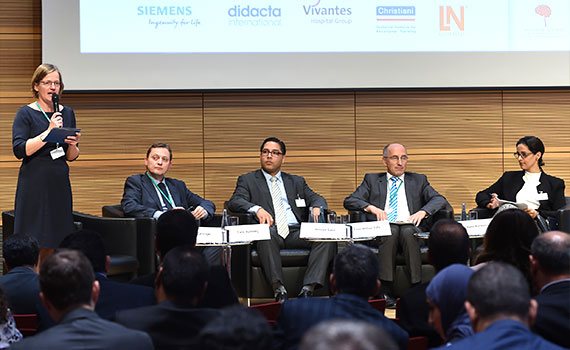
Qualification for occupational fields of the future
Uta Zähringer from the Renewables Academy (RENAC) AG hosted the session and placed renewable energies - a sector which according to Zähringer currently provides eight million direct and indirect jobs globally - in the context of the finite oil and gas reserves of the Arab countries.
Carlo Humberg from the TÜV Rheinland Academy, introduced the National Industrial Training Institute (NITI) in Saudi Arabia.
The NITI is a successful strategic partnership between Saudi Aramco, the world's largest oil producing company, and the TVTC. 2000 students gain oil and gas industry qualifications over 2 years full time, and in accordance with dual principles.
Ernst Michael Züfle from the Kraftwerkschule training centre outlined qualification projects in the oil and gas industry and in the field of renewable energies. This included a description of the changing requirements in the training of power station staff resulting from the "Energiewende" - Germany's move towards alternative energy. The Kraftwerkschule training centre operates internationally, for example, in Egypt where they are developing the training components for a gas turbine power station, which is a Siemens Project.
Hossam Gamil from the German Academy for Renewable Energy and Environmental Technology described the academy's international qualification programmes which exist in all of the renewable energy sectors. He showed a wide-ranging education and training project in Egypt as an example. The planning for this began in October 2015 and the project is scheduled to end in November 2018.
Nada Alsheaiby from Siemens, Saudi Arabia, showcased the Siemens education and training activities; the pace of which has picked up in light of the Saudi vision 2030. Managers are trained in the energy sector of tomorrow at the National Power Academy which is a public-private partnership academy.
Besides training engineers, technicians and project managers, Siemens also runs training programmes for women, for international graduates, and for people with disabilities. Siemens is also promoting interest in science and technology locally among school children.
The discussion which followed included the issue of what participants saw as the critical factors in Arab-German education and training measures.
The greatest challenges in the region remain the negative image of vocational education and training and the perceived poor career opportunities following vocational education and training.
German providers struggle to find teachers with both technical as well as linguistic and pedagogical competencies. Participants therefore viewed the localisation of teaching staff as a key task.
Guests and hosts ended the first day of the Arab-German Education and Vocational Training Forum together at a formal dinner.
Carlo Humberg from the TÜV Rheinland Academy, introduced the National Industrial Training Institute (NITI) in Saudi Arabia.
The NITI is a successful strategic partnership between Saudi Aramco, the world's largest oil producing company, and the TVTC. 2000 students gain oil and gas industry qualifications over 2 years full time, and in accordance with dual principles.
Ernst Michael Züfle from the Kraftwerkschule training centre outlined qualification projects in the oil and gas industry and in the field of renewable energies. This included a description of the changing requirements in the training of power station staff resulting from the "Energiewende" - Germany's move towards alternative energy. The Kraftwerkschule training centre operates internationally, for example, in Egypt where they are developing the training components for a gas turbine power station, which is a Siemens Project.
Hossam Gamil from the German Academy for Renewable Energy and Environmental Technology described the academy's international qualification programmes which exist in all of the renewable energy sectors. He showed a wide-ranging education and training project in Egypt as an example. The planning for this began in October 2015 and the project is scheduled to end in November 2018.
Nada Alsheaiby from Siemens, Saudi Arabia, showcased the Siemens education and training activities; the pace of which has picked up in light of the Saudi vision 2030. Managers are trained in the energy sector of tomorrow at the National Power Academy which is a public-private partnership academy.
Besides training engineers, technicians and project managers, Siemens also runs training programmes for women, for international graduates, and for people with disabilities. Siemens is also promoting interest in science and technology locally among school children.
The discussion which followed included the issue of what participants saw as the critical factors in Arab-German education and training measures.
The greatest challenges in the region remain the negative image of vocational education and training and the perceived poor career opportunities following vocational education and training.
German providers struggle to find teachers with both technical as well as linguistic and pedagogical competencies. Participants therefore viewed the localisation of teaching staff as a key task.
Guests and hosts ended the first day of the Arab-German Education and Vocational Training Forum together at a formal dinner.
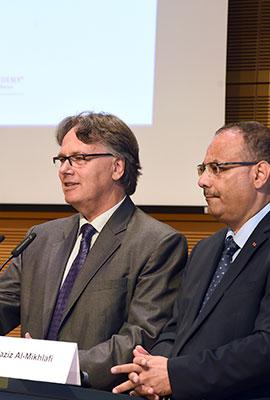
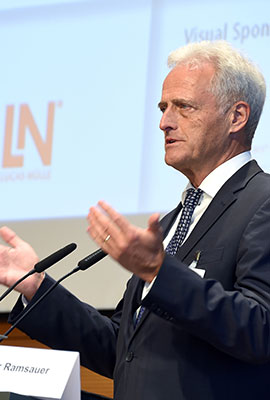
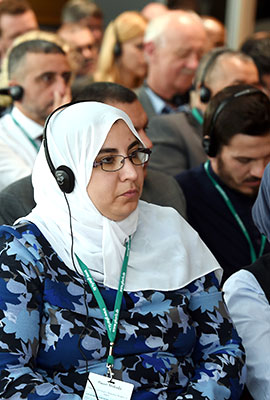
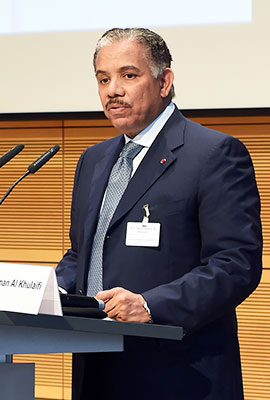
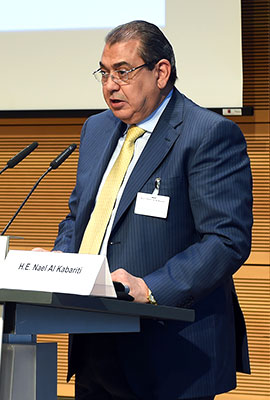
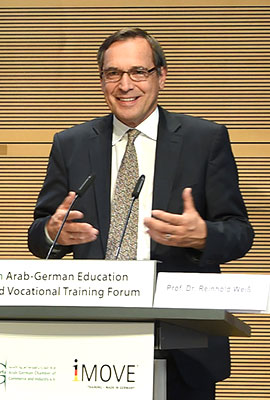
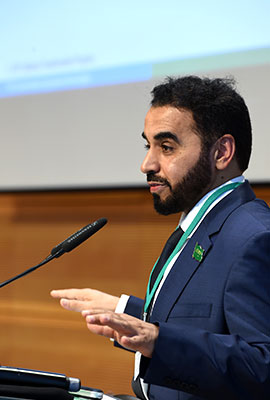
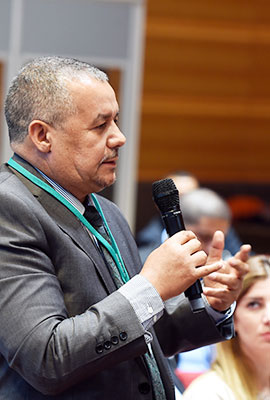
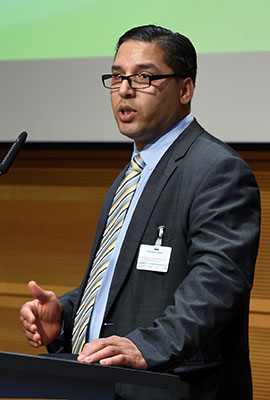
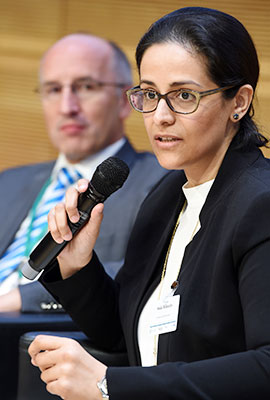
Session 2: Perfecting Hospitality – Vocational Education and Training (VET) Projects of the Tourism Sector
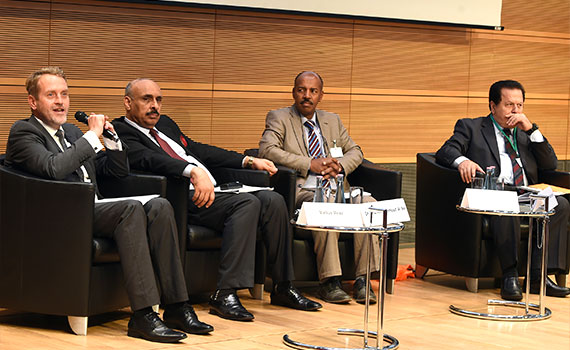
Successful examples from Algeria and Jordan
"Travel broadens horizons and encourages understanding of and between different cultures, which is of huge importance in particular at the current time," identified Markus Milwa of Dr.-Ing. Paul Christiani GmbH & Co KG - who hosted the first session at the start of the second day of the 7th. Arab-German Education and Vocational Training Forum. Tourism is an important economic factor and has significant potential in Arab countries. For instance Egypt, Algeria and Jordan which are the home countries of the panellists contain 18 World Heritage sites.
The keynote speech by Dr. Thamer Mahmoud Al Ani, from Egypt and the Arab League, began with an excursion into the world of science. He gave a paper on his studies about the development of a model for a knowledge-based economy (KBE) for Arab countries. The findings show how strongly different factors influence a society positively or negatively. His concludes that vocational education and training is very significant.
Professor Aoussine Seddiki, of the Université d'Oran 2 - Mohamed Ben Ahmed, Algeria, gave an account of education and training programmes in the tourism sector in Algeria.
A range of programmes take place at universities which are accredited by an Algerian ministry. Examples are the College of Management in the Hotel and Catering Industry under the umbrella of the Algerian Tourism Ministry, which has a cooperative arrangement with the Tourismus-College in Lausanne, Switzerland. Another example is the Superior National School of Algiers which is the responsibility of the Ministry for Land use, Tourism and Skilled Crafts and is accredited by the Ministry for Higher Education and Science.
Other programmes are running at private schools which are accredited by the Ministry for Vocational Education and Training. To conclude, Seddiki addressed the German education and training industry specifically. His university would like to collaborate with German academic institutions in order to optimise training in the tourism sector in Algeria taking underlying conditions at the local level into consideration.
Dr. Muhsen Makhamreh from the Jordan Applied University College of Hospitality and Tourism Education explained how the tourism sector in Jordan is currently changing as well as the new requirements placed on employee qualifications associated with this change. 14% of the gross domestic product of Jordan is currently accounted for by the tourism sector, a sector which creates new jobs on a continual basis.
However, in general the training programmes are too theoretical and graduates lack sufficient skills in terms of employability. The Ammon Applied University College is a public-private partnership institution and is a positive example of how young men and women can be equipped with all the knowledge and understanding which the tourism sector demands. From a language laboratory to the training hotel, the college provides graduates with all they require in terms of high-quality education and training. The college has already received several awards for its excellent work.
During the audience discussion the image problem of vocational education and training and employability in Arab countries was again the focus of many contributions. Algeria currently regards one of its major tasks as being to generate awareness of vocational education training among young people prior to the entrance qualification for university and to highlight the varied career opportunities offered by this route. Many universities offer vocational programmes in parallel to university education. These programmes enable graduates to increase their chances of finding a job. Jordan is not the only state which encourages independence among young entrepreneurs, for example, by means of providing favourable loans.
The keynote speech by Dr. Thamer Mahmoud Al Ani, from Egypt and the Arab League, began with an excursion into the world of science. He gave a paper on his studies about the development of a model for a knowledge-based economy (KBE) for Arab countries. The findings show how strongly different factors influence a society positively or negatively. His concludes that vocational education and training is very significant.
Professor Aoussine Seddiki, of the Université d'Oran 2 - Mohamed Ben Ahmed, Algeria, gave an account of education and training programmes in the tourism sector in Algeria.
A range of programmes take place at universities which are accredited by an Algerian ministry. Examples are the College of Management in the Hotel and Catering Industry under the umbrella of the Algerian Tourism Ministry, which has a cooperative arrangement with the Tourismus-College in Lausanne, Switzerland. Another example is the Superior National School of Algiers which is the responsibility of the Ministry for Land use, Tourism and Skilled Crafts and is accredited by the Ministry for Higher Education and Science.
Other programmes are running at private schools which are accredited by the Ministry for Vocational Education and Training. To conclude, Seddiki addressed the German education and training industry specifically. His university would like to collaborate with German academic institutions in order to optimise training in the tourism sector in Algeria taking underlying conditions at the local level into consideration.
Dr. Muhsen Makhamreh from the Jordan Applied University College of Hospitality and Tourism Education explained how the tourism sector in Jordan is currently changing as well as the new requirements placed on employee qualifications associated with this change. 14% of the gross domestic product of Jordan is currently accounted for by the tourism sector, a sector which creates new jobs on a continual basis.
However, in general the training programmes are too theoretical and graduates lack sufficient skills in terms of employability. The Ammon Applied University College is a public-private partnership institution and is a positive example of how young men and women can be equipped with all the knowledge and understanding which the tourism sector demands. From a language laboratory to the training hotel, the college provides graduates with all they require in terms of high-quality education and training. The college has already received several awards for its excellent work.
During the audience discussion the image problem of vocational education and training and employability in Arab countries was again the focus of many contributions. Algeria currently regards one of its major tasks as being to generate awareness of vocational education training among young people prior to the entrance qualification for university and to highlight the varied career opportunities offered by this route. Many universities offer vocational programmes in parallel to university education. These programmes enable graduates to increase their chances of finding a job. Jordan is not the only state which encourages independence among young entrepreneurs, for example, by means of providing favourable loans.
Session 3: Focus on North Africa – Cooperation Activities and Opportunities
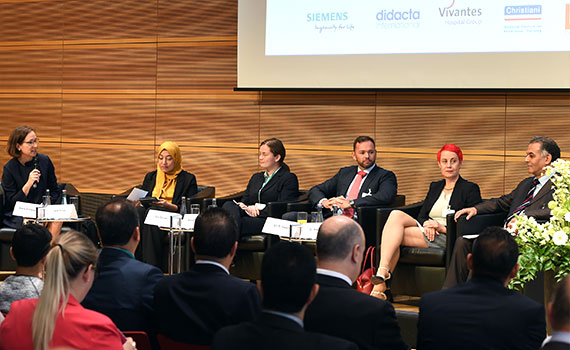
Vocational education and training: Employability versus image
In the third session the focus shifted onto North Africa. Kristine Schinkmann of iMOVE hosted the session and considered the particular significance of North Africa in terms of the large numbers of refugees and combating the reasons people are fleeing their native countries. Education, training and employment provide young people with prospects which induce them to stay in their home country.
In her keynote speech, Saida Ounissi, Secretary of State in the Tunisian Ministry for Education and Employment, gave an account of the current education and training situation in Tunisia. Ounissi regards vocational education and training as the initial answer to high employment in her country. Germany is seen as the role model in this respect. However, Tunisia can and will not copy the German system. The country is seeking to achieve three aims by implementing a vocational education and training system. The image of vocational education and training must improve, rural areas and future sectors are to be incorporated in the reforms, and the private sector must be integrated. Tunisia is well on the way to this.
Oana Steopan from the Bildungswerk der Bayerischen Wirtschaft (bbw Group) discussed some of the projects of a strategic nature both in and for Tunisia. Projects which have already been completed focused on the training of local training personnel. A project is currently under way which aims to introduce a certification system based on ISO 17024 and is being financed by the Bavarian state chancellery (personal certification). A further project financed by the Federal Ministry of Economic Cooperation and Development is concerned with the setup and management of vocational schools with a training provision which is demand focussed. Central to the success of projects, according to Steopan, is the cooperation with local partners from both the public and particularly also from the private sector.
Sebastian Neumann of Lucas Nülle Middle East, introduced Vocanto - a product providing technical qualifications using the cloud. This digital-based, mobile education and training option improves accessibility to vocational education and training for different target groups, such as the rural population, refugees, women, and people with disabilities. Vocantro combines distance learning, temporary learning environments and two week practical courses in the training centre as the final phase of the learning sequence. The mobile learning system is used in Saudi Arabia, for example.
The braintreeacademy is seeking to help school children of all ages to acquire joy and enthusiasm for learning through the community, discipline and a desire to learn. "Young people come to us with what they have and we bring out what's inside them,” is how San Ra Weckert describes the philosophy which works with music as a common language. Music is international and allows people of all nationalities to work together.
Dr. Hakim Al Nagah, senior advisor to the Libyan Education Minister, outlined the vocational education and training situation in Libya. The key challenges include the qualification of teachers and the integration of young people in the employment market. Libya would like to learn from vocational institutions and providers in Germany and exchange expertise.
In the dialogue with the audience the subjects covered included the aspect of language. It is generally very difficult to find German trainers with the relevant competency in English. However, what are the implications when we now consider the importance of the French language in North Africa?
The Tunisian Secretary of State explained in this context that the focus on French in Tunisia is currently changing and illustrated this by way of two examples. An increasing number of institutions are being created in Tunisia with British support and Tunisia is cooperating closely with the Goethe Institute.
In her keynote speech, Saida Ounissi, Secretary of State in the Tunisian Ministry for Education and Employment, gave an account of the current education and training situation in Tunisia. Ounissi regards vocational education and training as the initial answer to high employment in her country. Germany is seen as the role model in this respect. However, Tunisia can and will not copy the German system. The country is seeking to achieve three aims by implementing a vocational education and training system. The image of vocational education and training must improve, rural areas and future sectors are to be incorporated in the reforms, and the private sector must be integrated. Tunisia is well on the way to this.
Oana Steopan from the Bildungswerk der Bayerischen Wirtschaft (bbw Group) discussed some of the projects of a strategic nature both in and for Tunisia. Projects which have already been completed focused on the training of local training personnel. A project is currently under way which aims to introduce a certification system based on ISO 17024 and is being financed by the Bavarian state chancellery (personal certification). A further project financed by the Federal Ministry of Economic Cooperation and Development is concerned with the setup and management of vocational schools with a training provision which is demand focussed. Central to the success of projects, according to Steopan, is the cooperation with local partners from both the public and particularly also from the private sector.
Sebastian Neumann of Lucas Nülle Middle East, introduced Vocanto - a product providing technical qualifications using the cloud. This digital-based, mobile education and training option improves accessibility to vocational education and training for different target groups, such as the rural population, refugees, women, and people with disabilities. Vocantro combines distance learning, temporary learning environments and two week practical courses in the training centre as the final phase of the learning sequence. The mobile learning system is used in Saudi Arabia, for example.
The braintreeacademy is seeking to help school children of all ages to acquire joy and enthusiasm for learning through the community, discipline and a desire to learn. "Young people come to us with what they have and we bring out what's inside them,” is how San Ra Weckert describes the philosophy which works with music as a common language. Music is international and allows people of all nationalities to work together.
Dr. Hakim Al Nagah, senior advisor to the Libyan Education Minister, outlined the vocational education and training situation in Libya. The key challenges include the qualification of teachers and the integration of young people in the employment market. Libya would like to learn from vocational institutions and providers in Germany and exchange expertise.
In the dialogue with the audience the subjects covered included the aspect of language. It is generally very difficult to find German trainers with the relevant competency in English. However, what are the implications when we now consider the importance of the French language in North Africa?
The Tunisian Secretary of State explained in this context that the focus on French in Tunisia is currently changing and illustrated this by way of two examples. An increasing number of institutions are being created in Tunisia with British support and Tunisia is cooperating closely with the Goethe Institute.
Session 4: Higher Education in Cooperation with Vocational Education
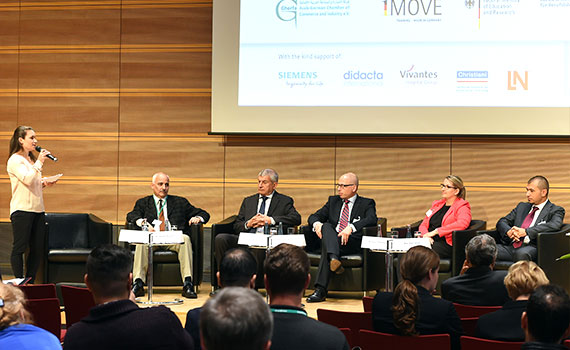
Using the dual degree to combat youth unemployment
The afternoon session on combining vocational and academic education and training was hosted by Kristina Stoewe, who works as a researcher at the Institute for German Economic Research.
Dr. Achmed Hussein of the Simson Private Academy (SPA) gave an account of the practice-based advanced education and training of students from the United Arab Emirates (UAE). Over the last eight years, students from the UAE have been coming to the German town of Suhl for a period of nine months to gain qualifications in metal processing occupations. The total number to date is 150. The SPA has entered into a cooperative arrangement with the "United Arab Emirates University". Building on the success of the nine month programme, participants now come to Suhl to complete a three and a half year training programme. The first six graduates recently received their certificate from the Chamber of Industry and Commerce (IHK) for the successful completion of their training.
Professor Dr. Dr. h.c. Şefik Alp Bahadir from the centre for Iraq Studies at the Friedrich-Alexander Universität Erlangen-Nürnberg (FAU) presented a model which combines vocational and academic education and training. The FAU Concept comprises four years, in which training phases alternate with theory phases at the university. In the third year, graduates obtain their vocational qualifications by taking an IHK examination. In the fourth year, they work in companies and write their Bachelor thesis. Bahadir regarded the lack of a national qualifications framework as the greatest obstacle in the implementation of this concept in Arab countries.
Dr. Colin Krüger from Vivantes – Netzwerk für Gesundheit presented a training programme from the area of minimal invasive surgery. The programme is focused on the robot-assisted da Vinci operation technology. International participants in the programme receive practical training in the different areas of robot-assisted operation technology. Krüger explained that a series of robotic facilities exist in the Arab countries and that so far it has not been possible to fully exploit the use of these facilities. He sees that there is a need here. 18 doctors from Arab countries are also currently working at the Berliner Humboldt-Klinikum. The intention is that they will have mastered the da Vinci technology at the end of their specialist medical training.
Kirsten Freimann from the Deutsche Gesellschaft für Internationale Zusammenarbeit (GIZ; German Agency for International Cooperation) presented a project which improves the employability of young Palestinian people with the use of labour market-oriented training. This is because Palestine also has an unemployment rate among young people of 46%. As part of the project in Palestine, 130 students, of which 57 are women, are completing a degree in electrical engineering, business administration or information technology. The GIZ is working closely with partners from the private sector. One of the partners is the local telecommunications company "Coolnet". Rani Nabil Alami outlined the benefits of the dual degree for the company and emphasized the fact that students were involved in practical work from the very first day.
In the concluding discussion the audience acknowledged the potential of a dual degree in terms of combating the high level of unemployment in the Arab countries. A major benefit is that a dual degree does not have to contend with the same image problems as purely vocational education and training. However, student numbers have been low up to now due to low levels of capacity.
Dr. Achmed Hussein of the Simson Private Academy (SPA) gave an account of the practice-based advanced education and training of students from the United Arab Emirates (UAE). Over the last eight years, students from the UAE have been coming to the German town of Suhl for a period of nine months to gain qualifications in metal processing occupations. The total number to date is 150. The SPA has entered into a cooperative arrangement with the "United Arab Emirates University". Building on the success of the nine month programme, participants now come to Suhl to complete a three and a half year training programme. The first six graduates recently received their certificate from the Chamber of Industry and Commerce (IHK) for the successful completion of their training.
Professor Dr. Dr. h.c. Şefik Alp Bahadir from the centre for Iraq Studies at the Friedrich-Alexander Universität Erlangen-Nürnberg (FAU) presented a model which combines vocational and academic education and training. The FAU Concept comprises four years, in which training phases alternate with theory phases at the university. In the third year, graduates obtain their vocational qualifications by taking an IHK examination. In the fourth year, they work in companies and write their Bachelor thesis. Bahadir regarded the lack of a national qualifications framework as the greatest obstacle in the implementation of this concept in Arab countries.
Dr. Colin Krüger from Vivantes – Netzwerk für Gesundheit presented a training programme from the area of minimal invasive surgery. The programme is focused on the robot-assisted da Vinci operation technology. International participants in the programme receive practical training in the different areas of robot-assisted operation technology. Krüger explained that a series of robotic facilities exist in the Arab countries and that so far it has not been possible to fully exploit the use of these facilities. He sees that there is a need here. 18 doctors from Arab countries are also currently working at the Berliner Humboldt-Klinikum. The intention is that they will have mastered the da Vinci technology at the end of their specialist medical training.
Kirsten Freimann from the Deutsche Gesellschaft für Internationale Zusammenarbeit (GIZ; German Agency for International Cooperation) presented a project which improves the employability of young Palestinian people with the use of labour market-oriented training. This is because Palestine also has an unemployment rate among young people of 46%. As part of the project in Palestine, 130 students, of which 57 are women, are completing a degree in electrical engineering, business administration or information technology. The GIZ is working closely with partners from the private sector. One of the partners is the local telecommunications company "Coolnet". Rani Nabil Alami outlined the benefits of the dual degree for the company and emphasized the fact that students were involved in practical work from the very first day.
In the concluding discussion the audience acknowledged the potential of a dual degree in terms of combating the high level of unemployment in the Arab countries. A major benefit is that a dual degree does not have to contend with the same image problems as purely vocational education and training. However, student numbers have been low up to now due to low levels of capacity.
Closing Remarks: Perspectives of Arab-German Cooperation in VET
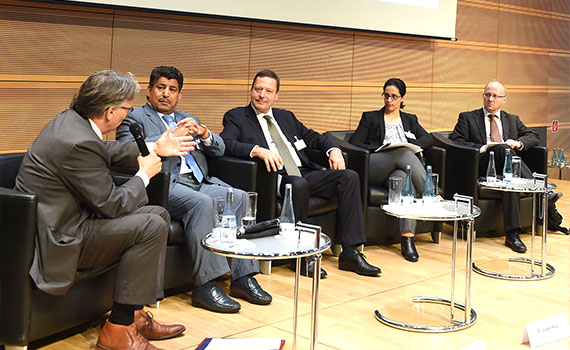
Provides support for specific requirements in vocational education and training
In the final discussion, Ulrich Meinecke of iMOVE asked participants, amongst other things, for specific proposals for partnership-based collaboration between the German education and training industry and the Arab countries.
In light of Saudi Arabia's vision 2030, Meinecke asked how German training companies can make a specific contribution. He also noted that the training of young people in Germany is integrated in the value-added process and constitutes an investment. In this respect, Germany is predestined to always link supplies and investments to initial and continuing education and training. Could this not form part of the bid in requests for tender for infrastructure projects?
Dr. Jürgen Holz of the Terra Sola Group spoke about the Terra Sola consortium which is implementing a large photovoltaic project in Egypt. It aims to produce photovoltaic systems, to establish photovoltaic power stations and ensure the necessary personnel gain qualifications with Renewables Academy RENAC as the training partner. A number of Egyptian companies are involved in the project. The scheme could generate 20,000 jobs in the country. Terra Sola is in final negotiations with the Egyptian government.
Berthold Breid, represents Renewables Academy (RENAC) which is the training partner of the Sola Consortium in Egypt. In the interests of the value-added chain, training is carried out in the photovoltaic project in all occupations affected from engineering through to the areas of administration and finance. Egypt is seeking to cover 20% of its demand from renewable energies by 2020. This can be achieved provided training has been carried out in all occupations required.
Nada Alsheaiby of Siemens Saudi Arabia believes the training of local trainers to be a key step in the acceptance of vocational education and training in the Arab region. Alsheaiby also referred to the fact that Siemens are gaining orders from the region because the proposals made have already taken training measures into consideration. This is also the case in Egypt where Siemens won the tender for three gas turbine power stations because education and training components had formed part of the bid. During the discussion she pointed out that well-qualified people in Saudi Arabia frequently change jobs. In other words, companies must make themselves more attractive in order to retain good people.
Dr. Abdulrahman H. Alhumedhi, Education and Training advisor from the Ministry of Education in Saudi Arabia, made it clear that Saudi Arabia is not seeking to transfer the traditional German dual vocational education and training to Saudi Arabia. The kingdom is instead seeking collaboration, for example in areas such as high-tech and medical occupations. He stressed that German providers of education and training measures in Saudi Arabia had to fully accept the existing underlying conditions in the country.
At the close of the 7th Arab-German Education and Vocational Training Forum, Meinecke urged participants and guests from Arabic countries to inform iMOVE of their existing requirements in as much detail as possible. This is because specific requirements mean that iMOVE is able to identify suitable business partners from the German education and training industry.
In light of Saudi Arabia's vision 2030, Meinecke asked how German training companies can make a specific contribution. He also noted that the training of young people in Germany is integrated in the value-added process and constitutes an investment. In this respect, Germany is predestined to always link supplies and investments to initial and continuing education and training. Could this not form part of the bid in requests for tender for infrastructure projects?
Dr. Jürgen Holz of the Terra Sola Group spoke about the Terra Sola consortium which is implementing a large photovoltaic project in Egypt. It aims to produce photovoltaic systems, to establish photovoltaic power stations and ensure the necessary personnel gain qualifications with Renewables Academy RENAC as the training partner. A number of Egyptian companies are involved in the project. The scheme could generate 20,000 jobs in the country. Terra Sola is in final negotiations with the Egyptian government.
Berthold Breid, represents Renewables Academy (RENAC) which is the training partner of the Sola Consortium in Egypt. In the interests of the value-added chain, training is carried out in the photovoltaic project in all occupations affected from engineering through to the areas of administration and finance. Egypt is seeking to cover 20% of its demand from renewable energies by 2020. This can be achieved provided training has been carried out in all occupations required.
Nada Alsheaiby of Siemens Saudi Arabia believes the training of local trainers to be a key step in the acceptance of vocational education and training in the Arab region. Alsheaiby also referred to the fact that Siemens are gaining orders from the region because the proposals made have already taken training measures into consideration. This is also the case in Egypt where Siemens won the tender for three gas turbine power stations because education and training components had formed part of the bid. During the discussion she pointed out that well-qualified people in Saudi Arabia frequently change jobs. In other words, companies must make themselves more attractive in order to retain good people.
Dr. Abdulrahman H. Alhumedhi, Education and Training advisor from the Ministry of Education in Saudi Arabia, made it clear that Saudi Arabia is not seeking to transfer the traditional German dual vocational education and training to Saudi Arabia. The kingdom is instead seeking collaboration, for example in areas such as high-tech and medical occupations. He stressed that German providers of education and training measures in Saudi Arabia had to fully accept the existing underlying conditions in the country.
At the close of the 7th Arab-German Education and Vocational Training Forum, Meinecke urged participants and guests from Arabic countries to inform iMOVE of their existing requirements in as much detail as possible. This is because specific requirements mean that iMOVE is able to identify suitable business partners from the German education and training industry.
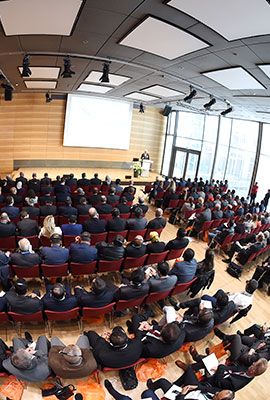
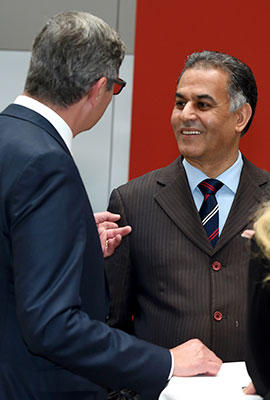
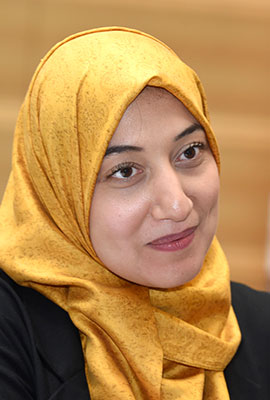
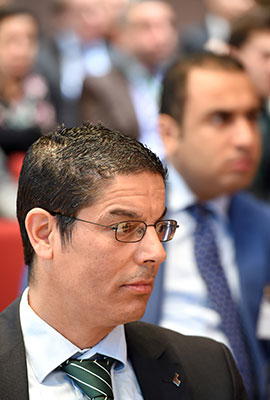

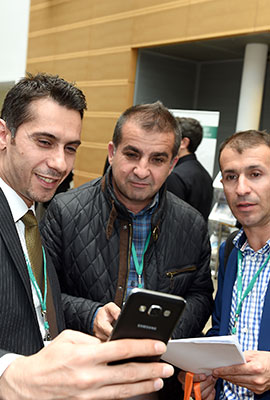
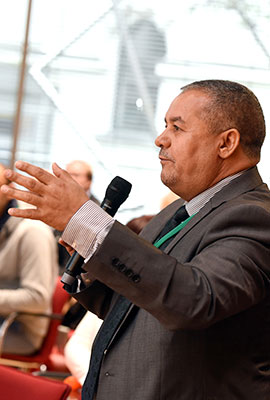
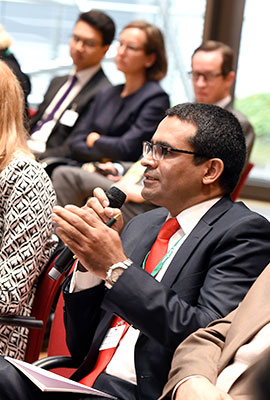
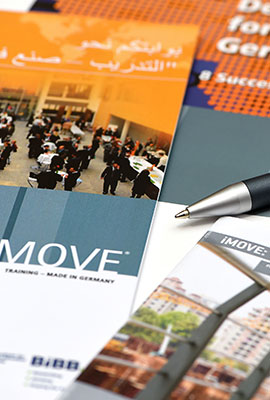
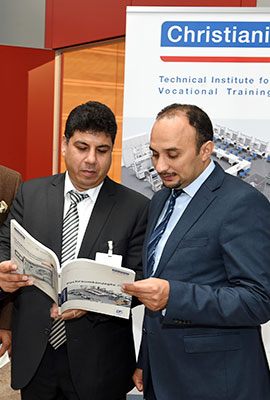
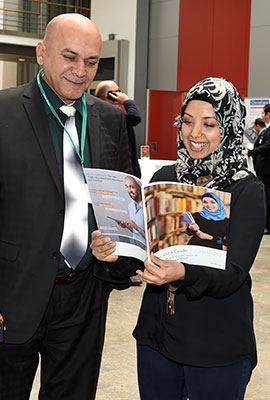
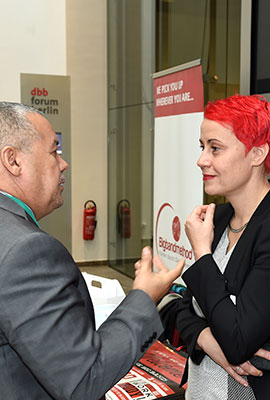
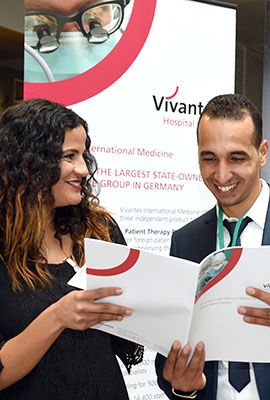
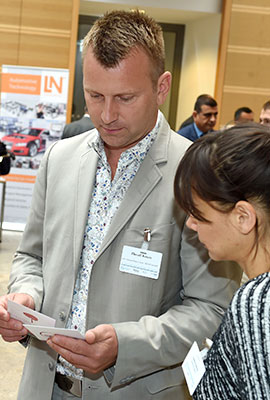
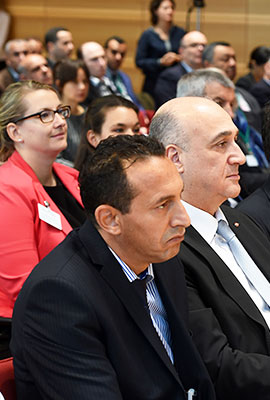


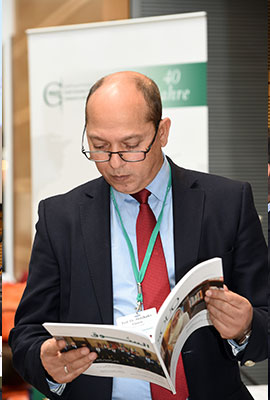
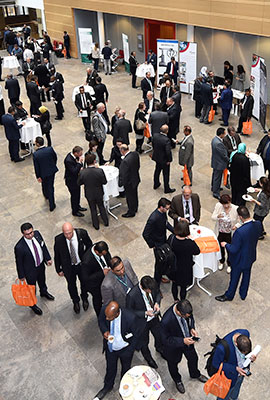
This content is available in English only.
Opening Ceremony
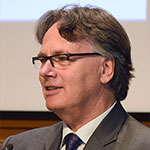
Ulrich Meinecke
Head of iMOVE: Training – Made in Germany at the Federal Institute for Vocational Education and Training (BIBB), Germany
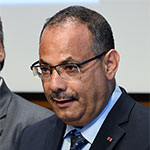
Abdulaziz Al-Mikhlafi
Secretary General, Ghorfa Arab-German Chamber of Commerce & Industry, Germany
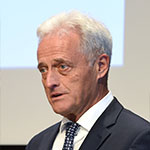
Dr. Peter Ramsauer
Federal Minister retired, President, Ghorfa Arab-German Chamber of Commerce & Industry, Germany
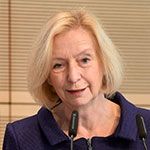
Her Excellency Professor Dr. Johanna Wanka
Federal Minister, Federal Ministry of Education and Research, Germany
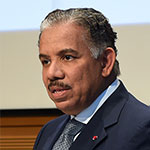
His Excellency Abdulrahman bin Mohammed Al Khulaifi
Ambassador of the State of Qatar, Dean of the Arab Diplomatic Corps, Germany

His Excellency Nael Al Kabariti
President / Chairman, Union of Arab Chambers / Jordan Chamber of Commerce, Jordan
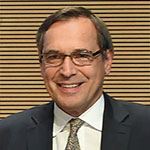
Professor Dr. Reinhold Weiß
Deputy President, Federal Institute for Vocational Education and Training (BIBB), Germany
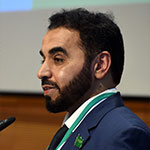
His Excellency Dr. Ahmed bin Fahd bin Ibrahim Al Fuhaid
Governor of the Technical and Vocational Training Corporation (TVTC), Saudi Arabia
Spurring Innovation in a Sunrise Industry – Vocational Education and Training (VET) Projects of the Energy Sector
Session 1

Uta Zähringer
Director Master Degree Studies, Renewables Academy (RENAC) AG, Germany
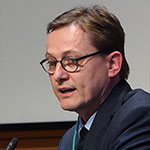
Carlo Humberg
Business Development International, TÜV Rheinland Academy, Germany
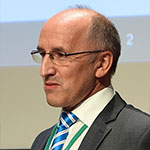
Ernst Michael Züfle
General Manager, Kraftwerksschule e. V. (KWS), Germany
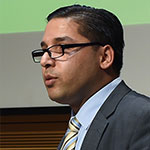
Hossam Gamil
Director of Educational Programs for Renewable Energies & Environment, German Academy for Renewable Energy and Environmental Technology, Germany
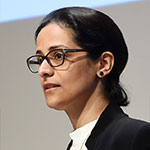
Nada Alsheaiby
Human Resources Business Partner, Siemens Ltd., Saudi Arabia
Perfecting Hospitality – VET Projects of the Tourism Sector
Session 2
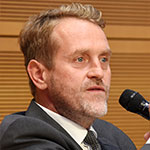
Markus Milwa
International Relations, Dr.-Ing. Paul Christiani GmbH & Co. KG, Germany
- Chair

Dr. Thamer Mahmoud Al Ani
Director, Economic Relations Department at the League of Arab States, Egypt
- Keynote
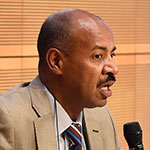
Professor Aoussine Seddiki
Advisor to the Rector, Université d'Oran 2 - Mohamed Ben Ahmed, Algeria
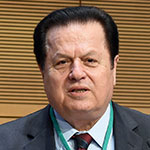
Dr. Muhsen Makhamreh
Dean, Jordan Applied University College of Hospitality and Tourism Education, Jordan
Focus on North Africa – Cooperation Activities and Opportunities
Session 3
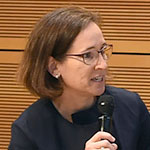
Kristine Schinkmann
VET Export Advisor Arab Countries and Latin America, iMOVE: Training – Made in Germany at the Federal Institute for Vocational Education and Training (BIBB), Germany
- Chair

Saida Ounissi
State Secretary, Ministry of Vocational Training and Employment, Tunisia
- Keynote
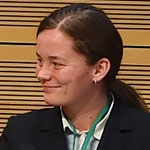
Oana Steopan
Project Manager, bbw gGmbH, Germany
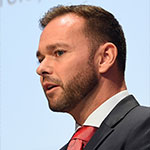
Sebastian Neumann
Regional Manager, Lucas Nülle Middle East, United Arab Emirates
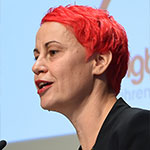
San Ra Weckert
Chief Executive Officer, braintreeacademy GmbH, Germany
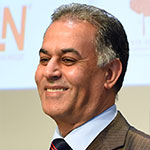
Dr. Hakim Al Nagah
Senior Advisor for the Libyan Minister of Education, Ministry of Higher Education and Scientific Research, Libya
Higher Education in Cooperation with Vocational Education
Session 4
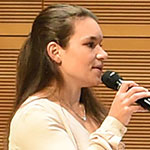
Kristina Stoewe
Researcher, Institut der deutschen Wirtschaft Köln e. V., Germany
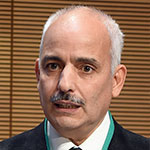
Dr. Achmed Hussein
Project Team Member Intercultural Affairs, SPA GmbH - Simson Private Academy, Germany
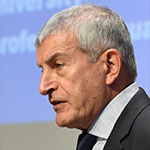
Professor Dr. Dr. h.c. Şefik Alp Bahadir
Director, CIS - Center for Iraq Studies / Friedrich-Alexander University Erlangen-Nürnberg, Germany
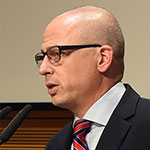
Dr. Colin Krüger
Head of Minimal Invasive Surgery / Robotik (DaVinci), Department for Surgery, Vivantes – Netzwerk für Gesundheit GmbH, The Vivantes Robotik (DaVinci) Surgery Education Program (RSEP), Germany
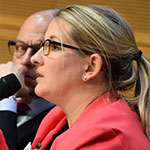
Kirsten Freimann
Head of Component Dual Studies, Deutsche Gesellschaft für Internationale Zusammenarbeit (GIZ)
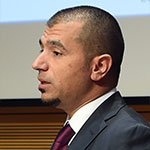
Rani Nabil Alami
Coolnet Broadband Services Ltd., Palestine
Perspectives of Arab-German Cooperation in VET
Closing Remarks

Ulrich Meinecke
Head of iMOVE: Training – Made in Germany at the Federal Institute for Vocational Education and Training (BIBB), Germany
- Chair
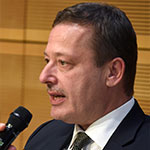
Dr. Jürgen Holz
Member of the Board, Terra Sola Group AG, Switzerland
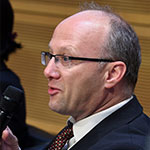
Berthold Breid
Chief Executive Officer, Renewables Academy AG (RENAC), Germany

Nada Alsheaiby
Human Resources Business Partner, Siemens Ltd., Saudi Arabia
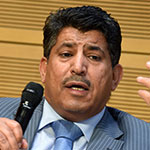
Dr. Abdulrahman H. Alhumedhi
Educational Consultant, Ministry of Education, Saudi Arabia
This content is available in English only.
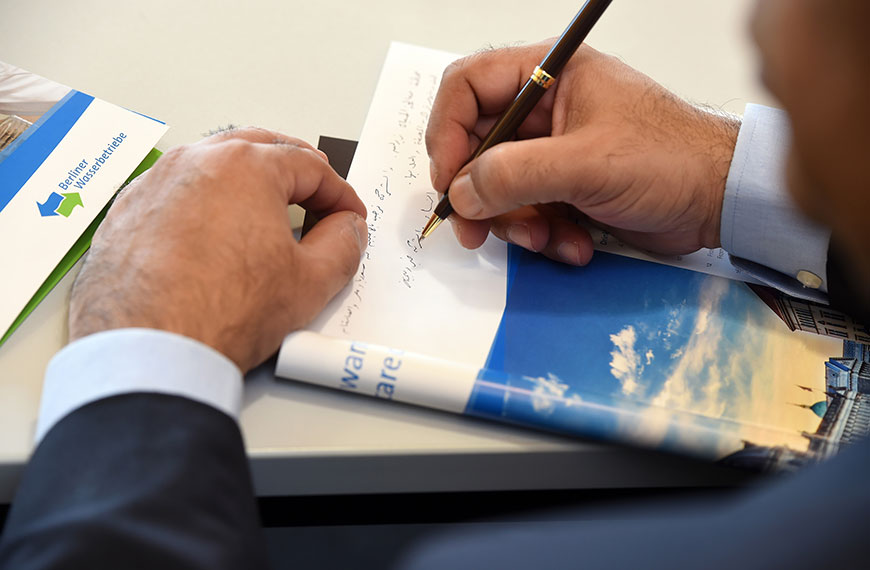
Site Visit for Arab guests

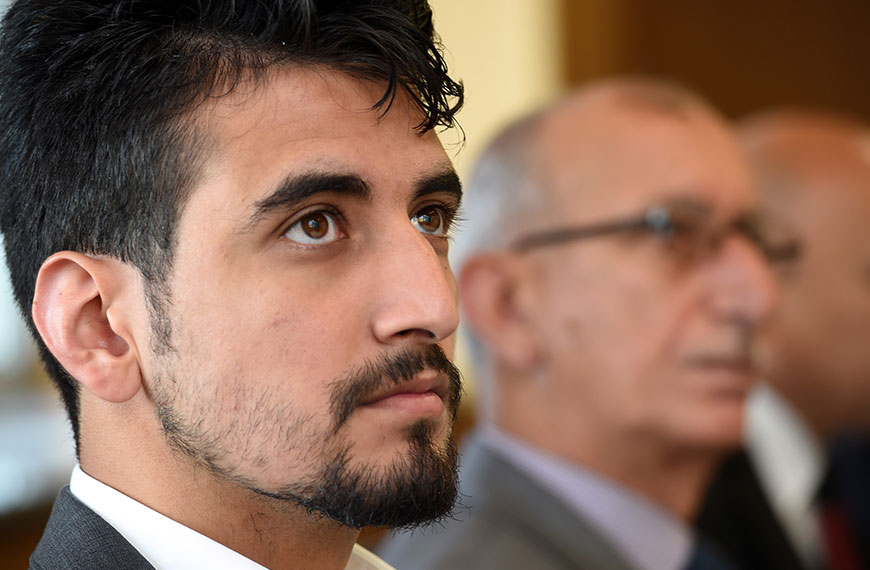
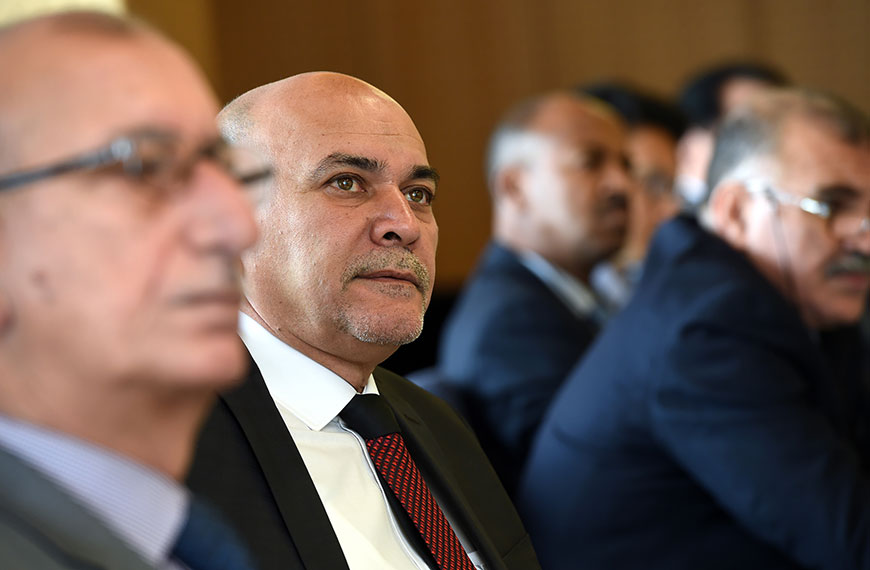
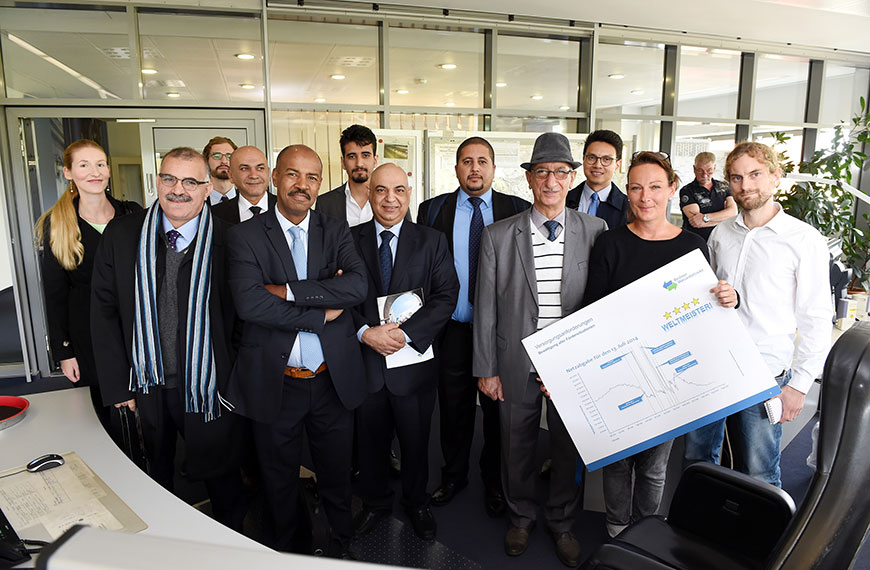
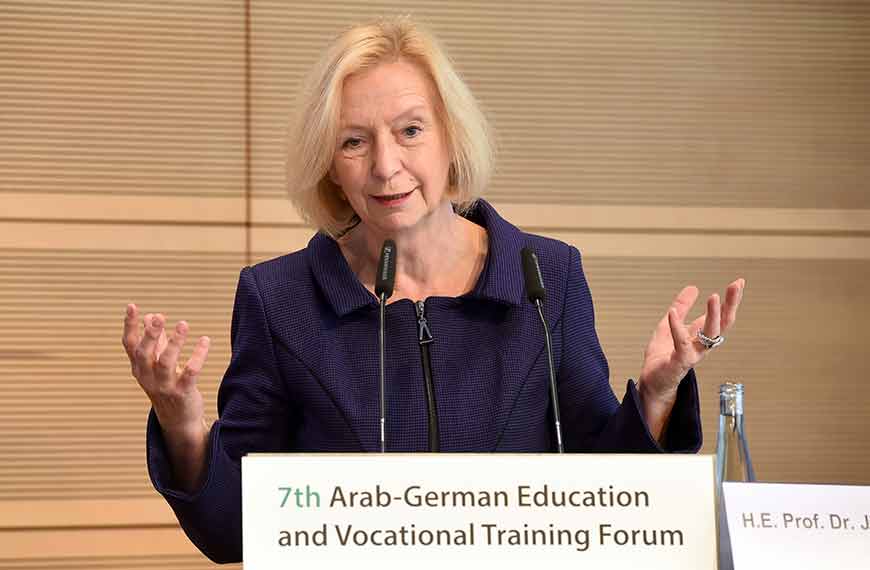
Opening Ceremony
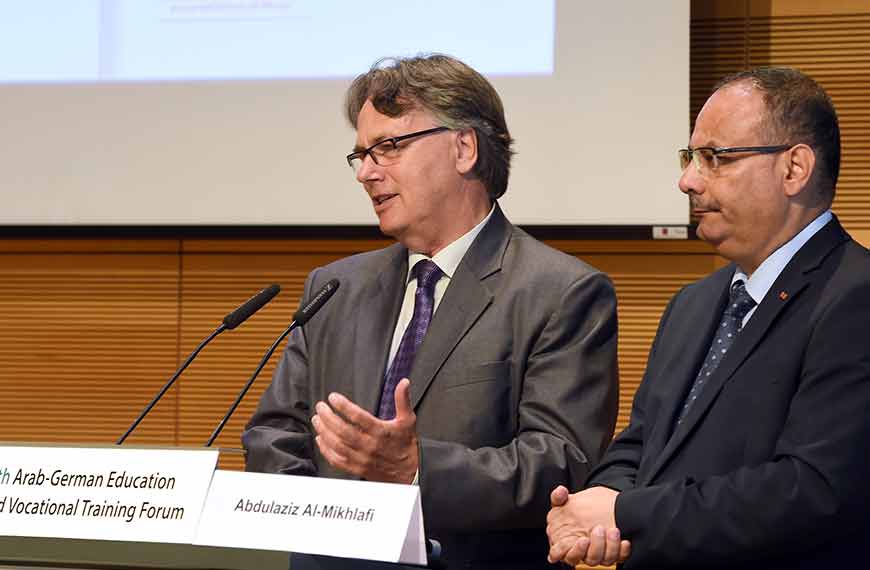
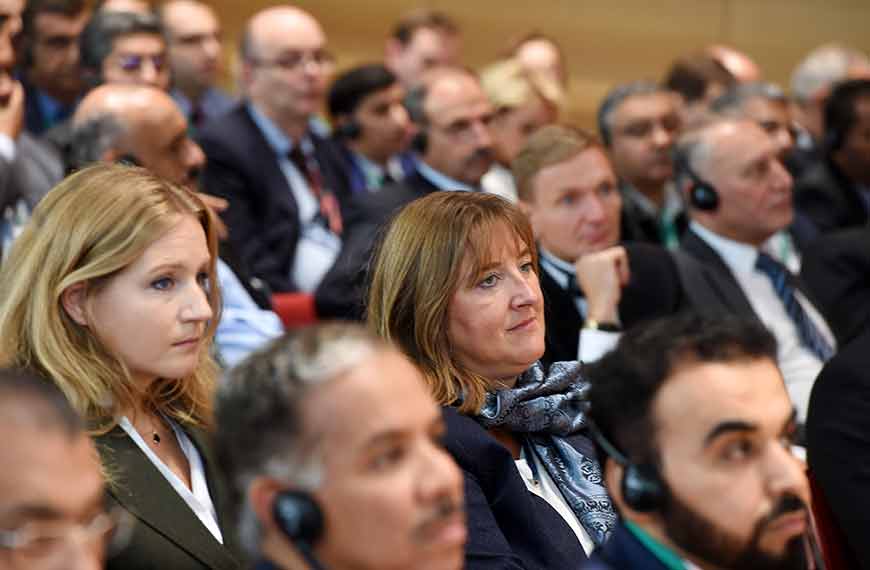
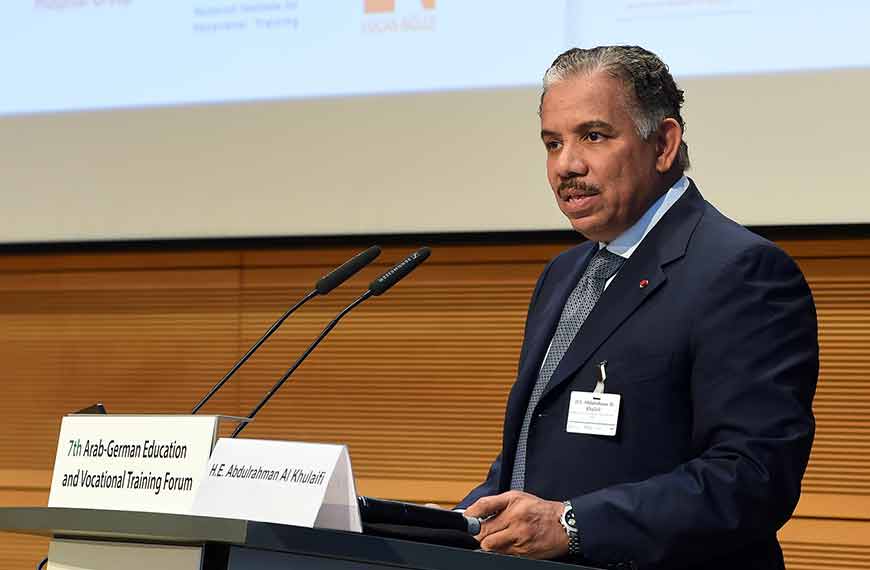
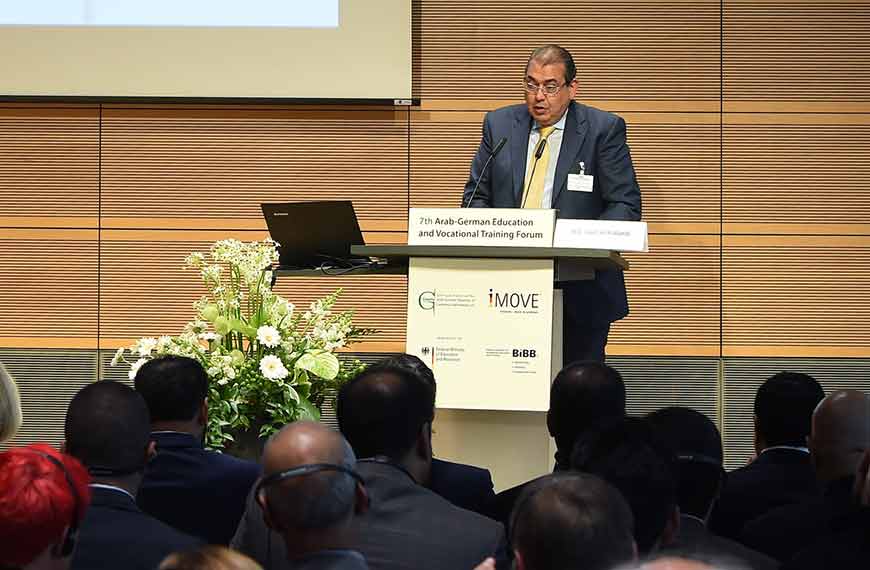
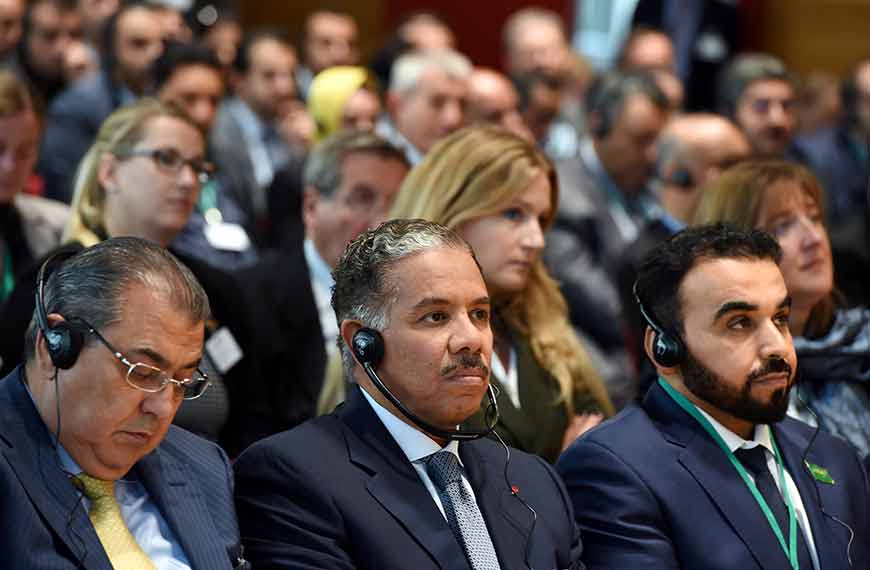
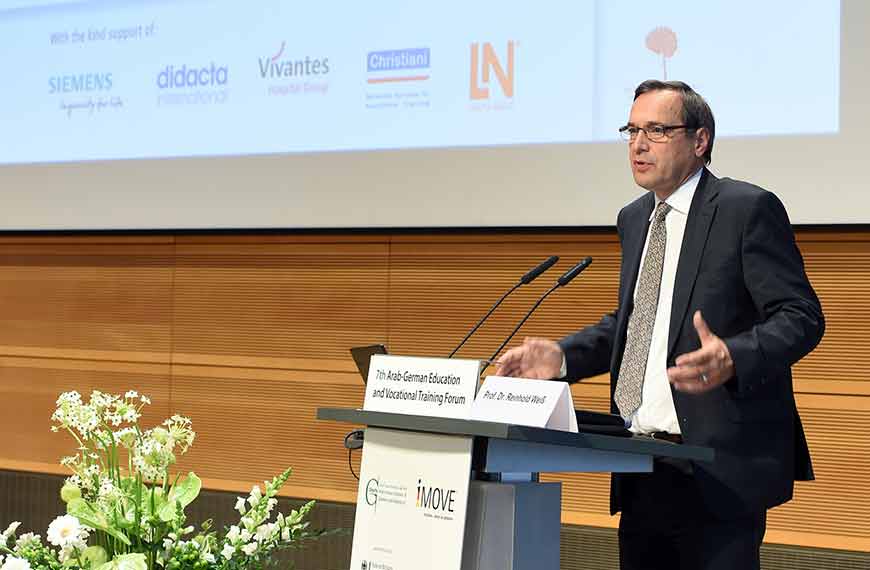
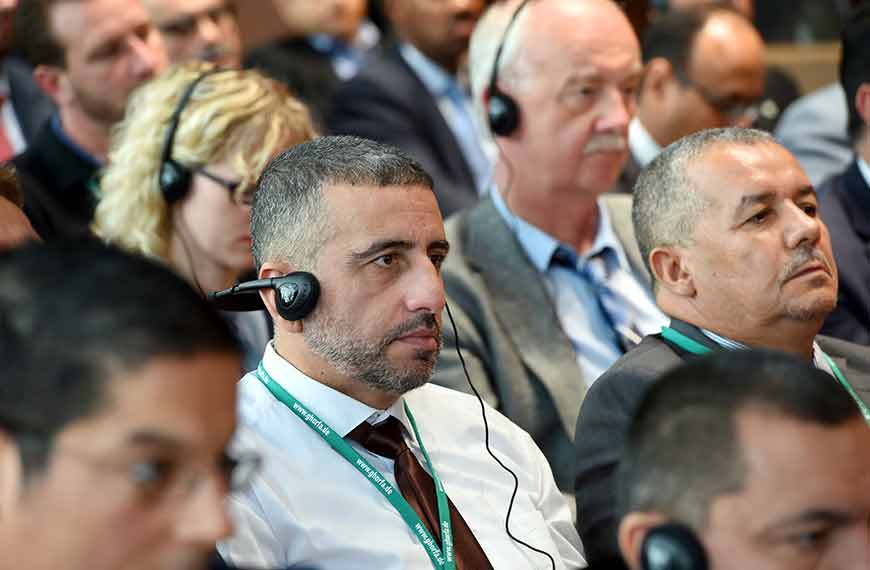
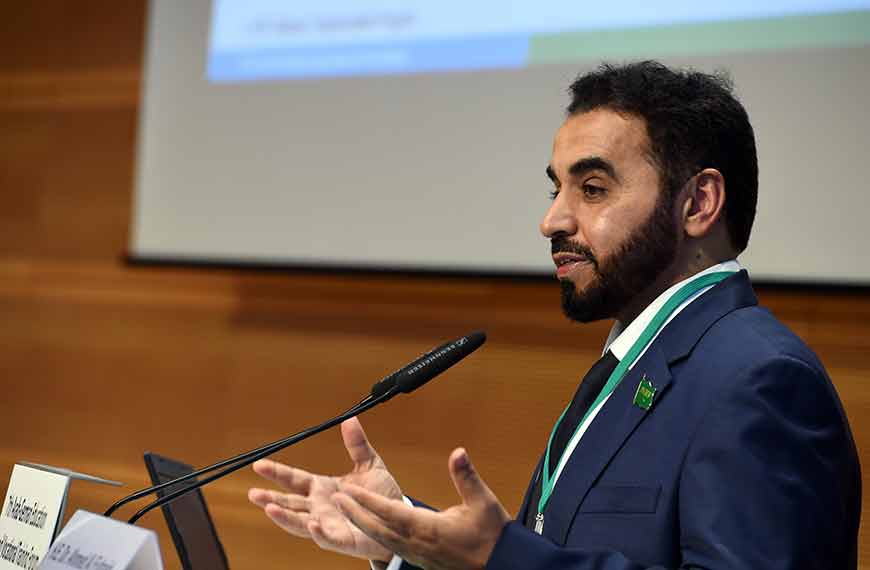
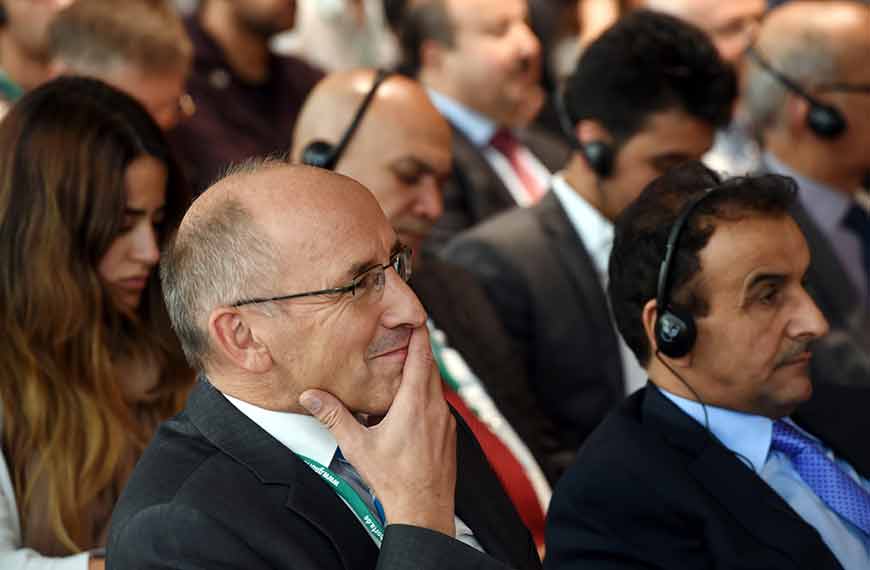

Session 1 and Session 2









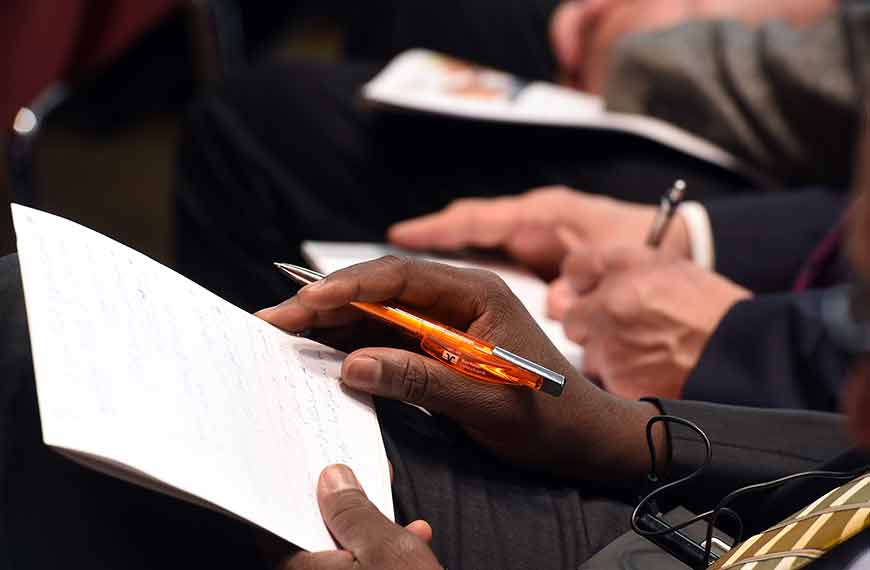
Session 3


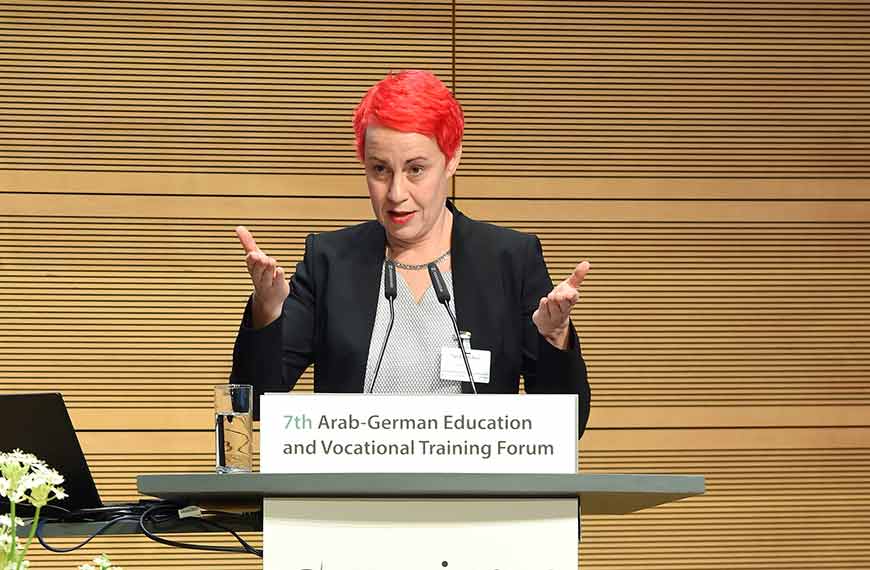
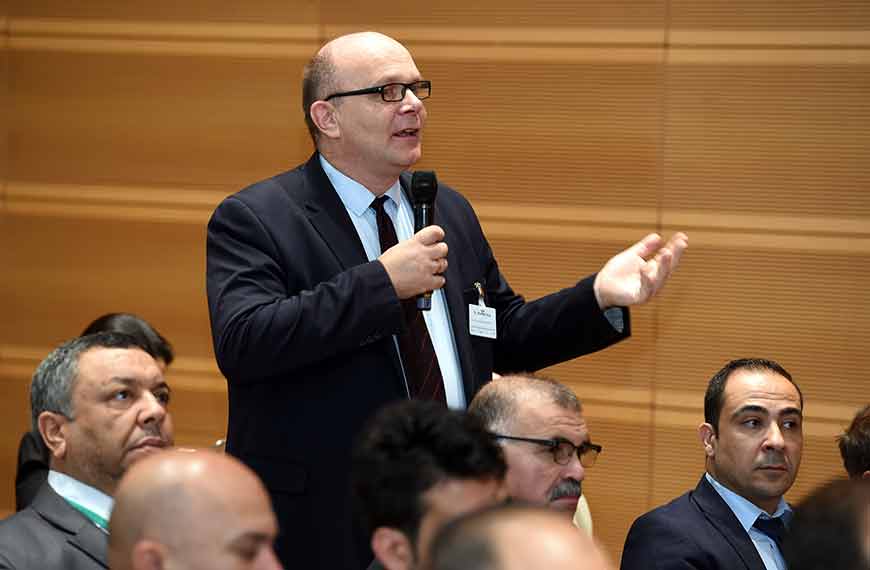


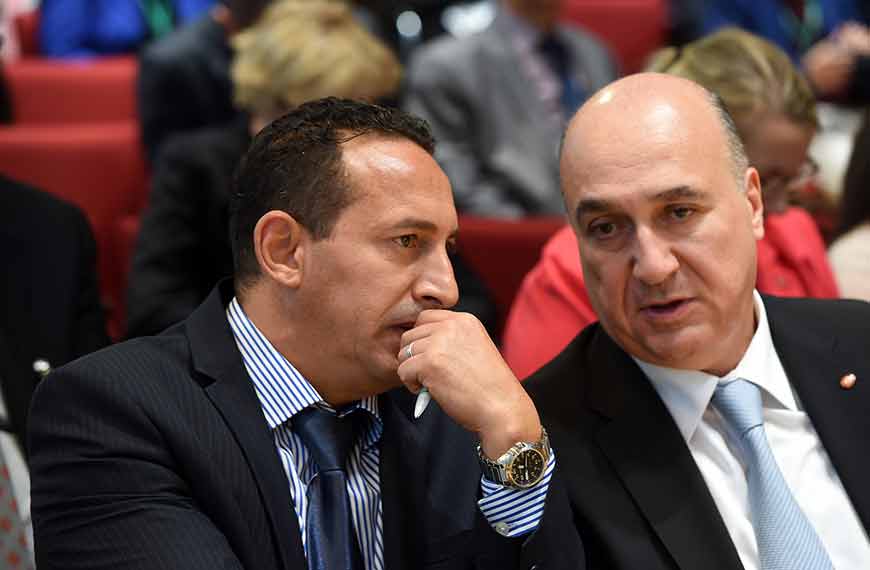



Session 4 and Closing Remarks




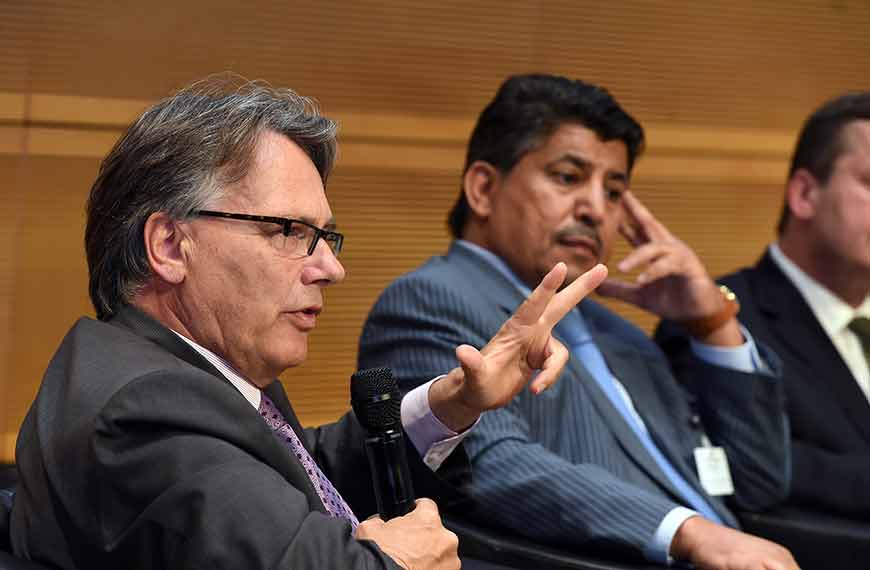





Guests of the 7th Arab-German Education Forum



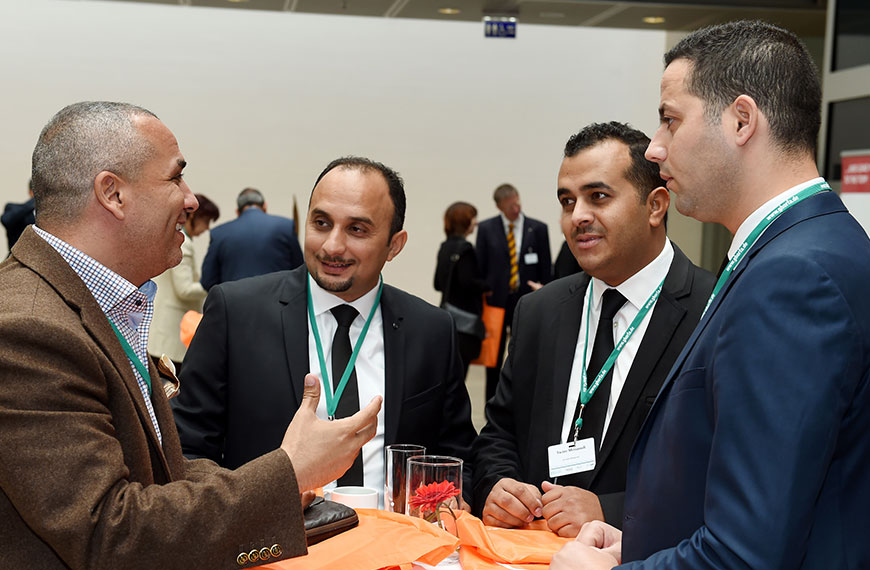
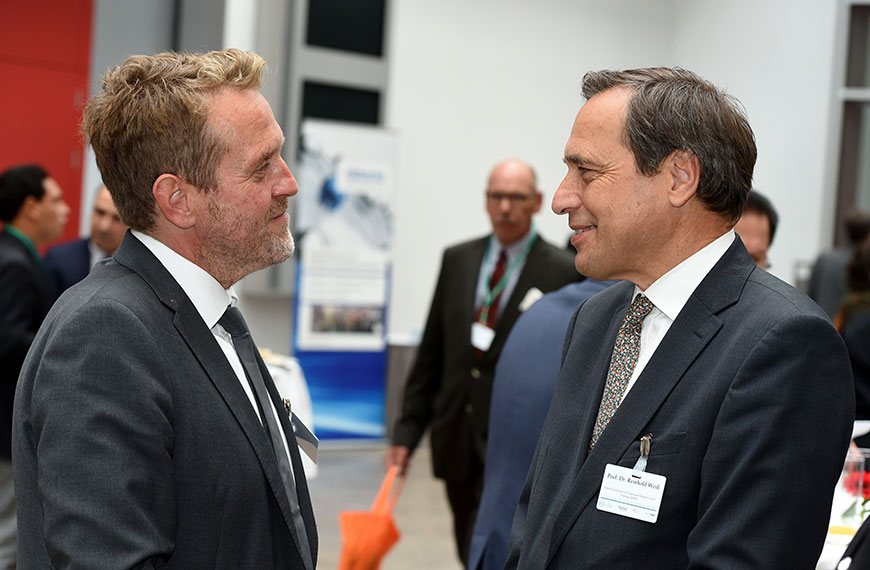
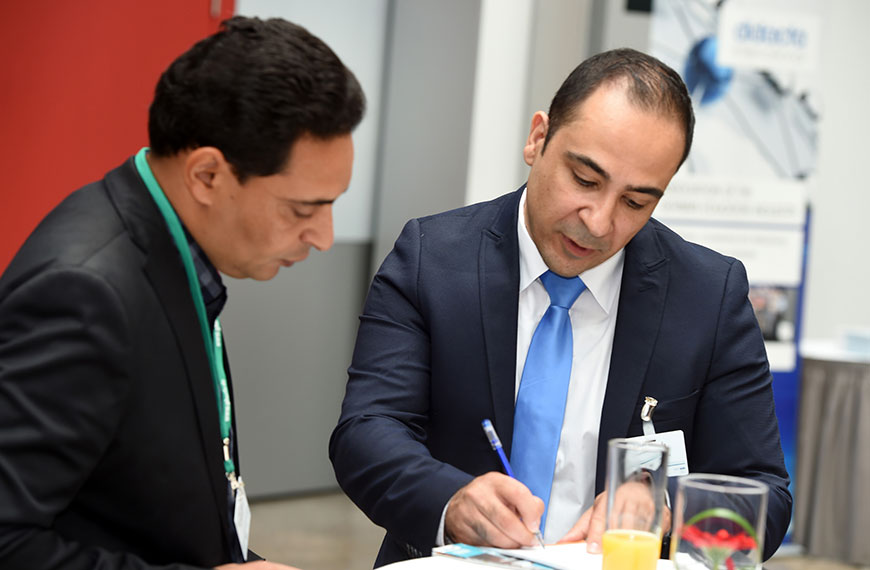


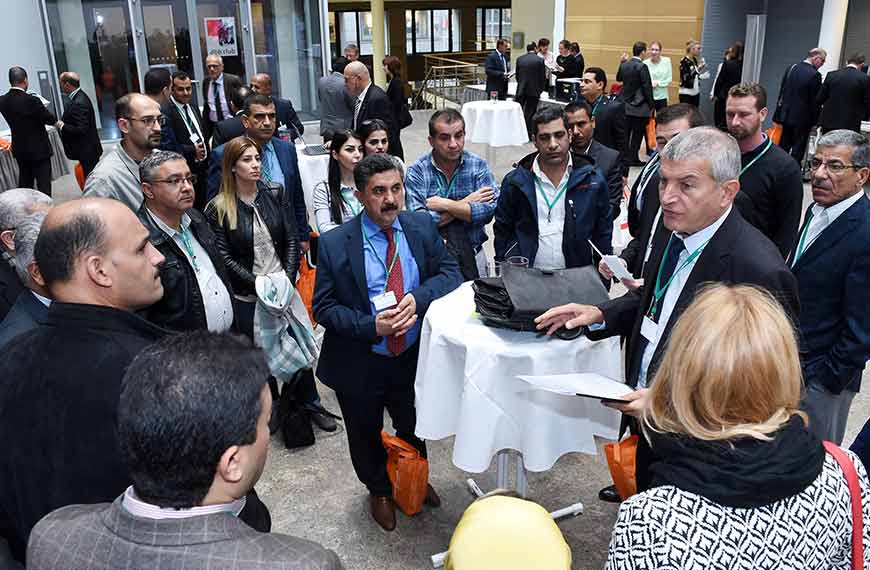
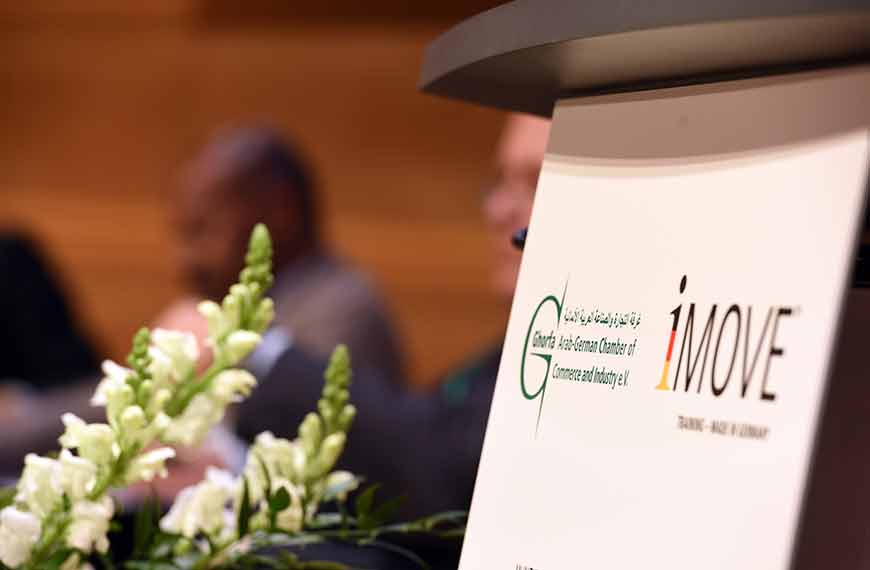
Guests of the 7th Arab-German Education Forum


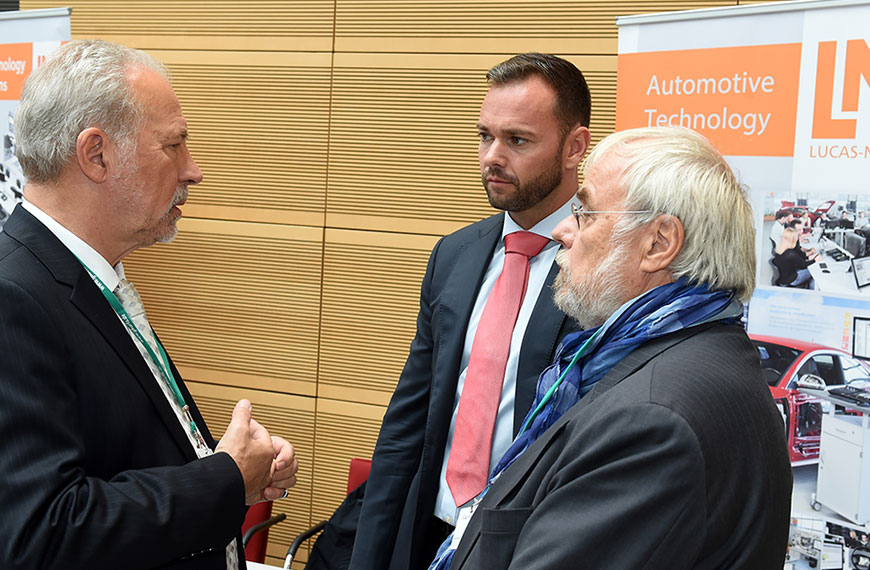
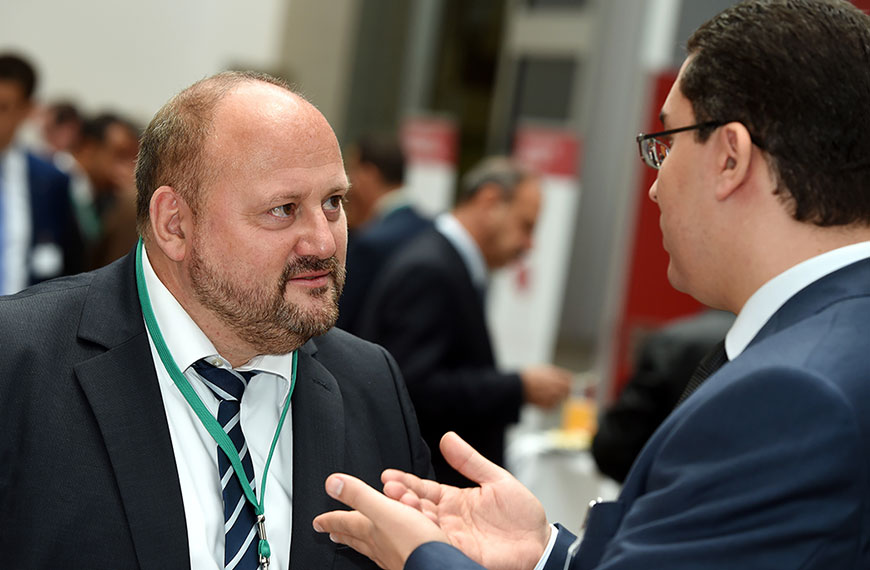
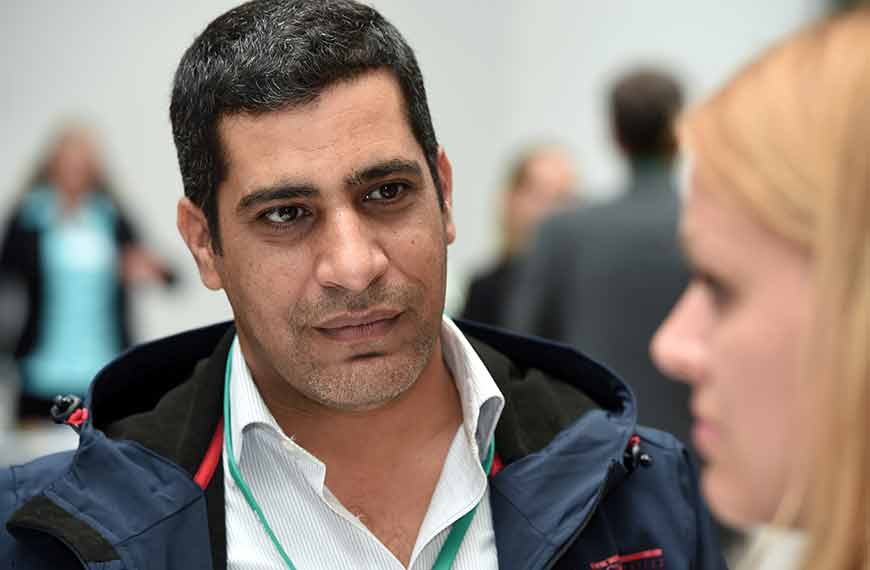
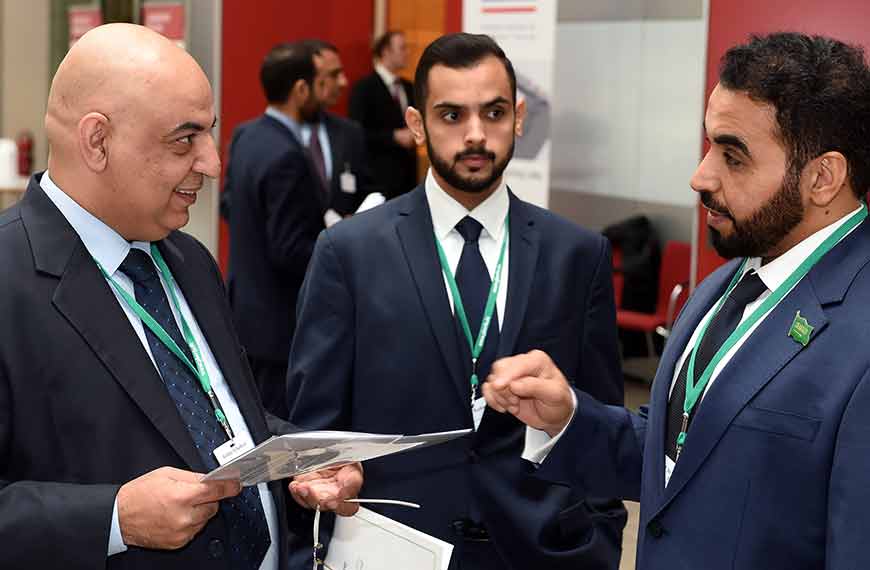

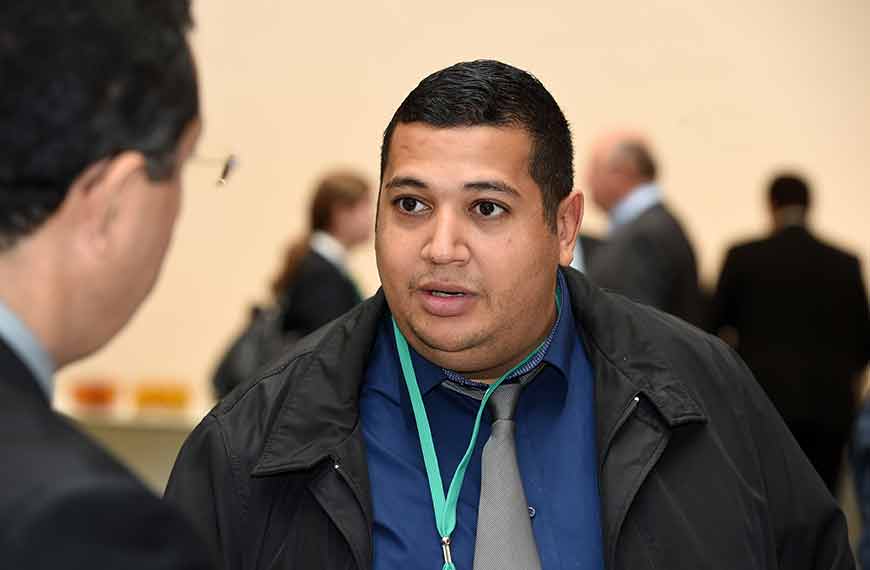
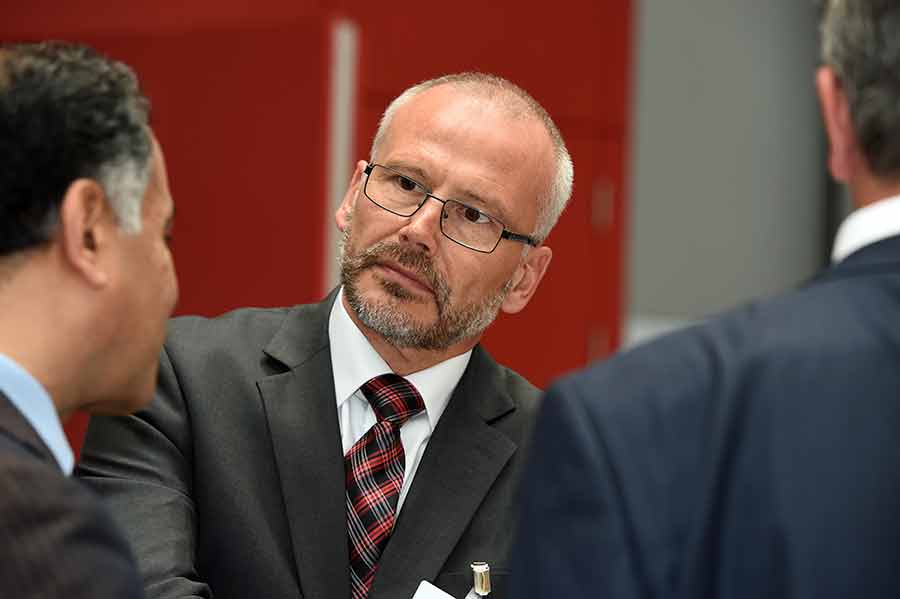
© Photos: BIBB/iMOVE/Ghorfa
Photographer: Peter Himsel, Germany
Photographer: Peter Himsel, Germany